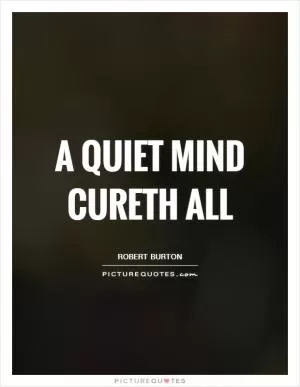Be fearful only of thyself, and stand in awe of none more than thine own conscience

Be fearful only of thyself, and stand in awe of none more than thine own conscience
Robert Burton was an English scholar and writer best known for his work "The Anatomy of Melancholy," a comprehensive study of the causes, symptoms, and treatments of melancholy. In this work, Burton delves into the complexities of the human mind and the various factors that can lead to mental distress. One of the key themes that Burton explores is the idea of self-awareness and the importance of listening to one's own conscience.The quote "Be fearful only of thyself, and stand in awe of none more than thine own conscience" encapsulates Burton's belief in the power of self-reflection and introspection. Burton believed that true wisdom comes from understanding oneself and being aware of one's own thoughts, feelings, and actions. By being fearful only of oneself, Burton suggests that individuals should be cautious of their own motivations and intentions, as these can often be the source of inner turmoil and conflict.
Burton also emphasizes the importance of standing in awe of one's own conscience. Conscience, in Burton's view, is the moral compass that guides individuals towards right action and helps them navigate the complexities of life. By standing in awe of one's own conscience, Burton suggests that individuals should listen to their inner voice and follow its guidance, even when faced with difficult decisions or moral dilemmas.












 Friendship Quotes
Friendship Quotes Love Quotes
Love Quotes Life Quotes
Life Quotes Funny Quotes
Funny Quotes Motivational Quotes
Motivational Quotes Inspirational Quotes
Inspirational Quotes